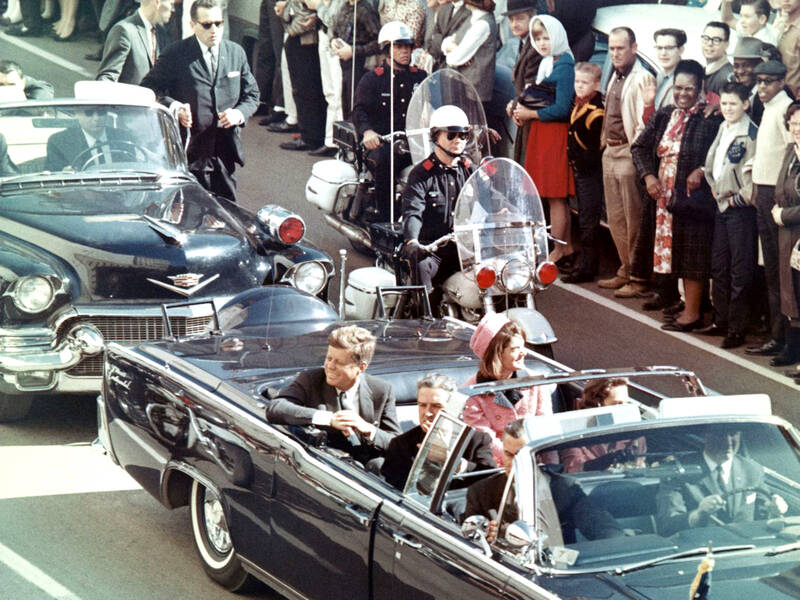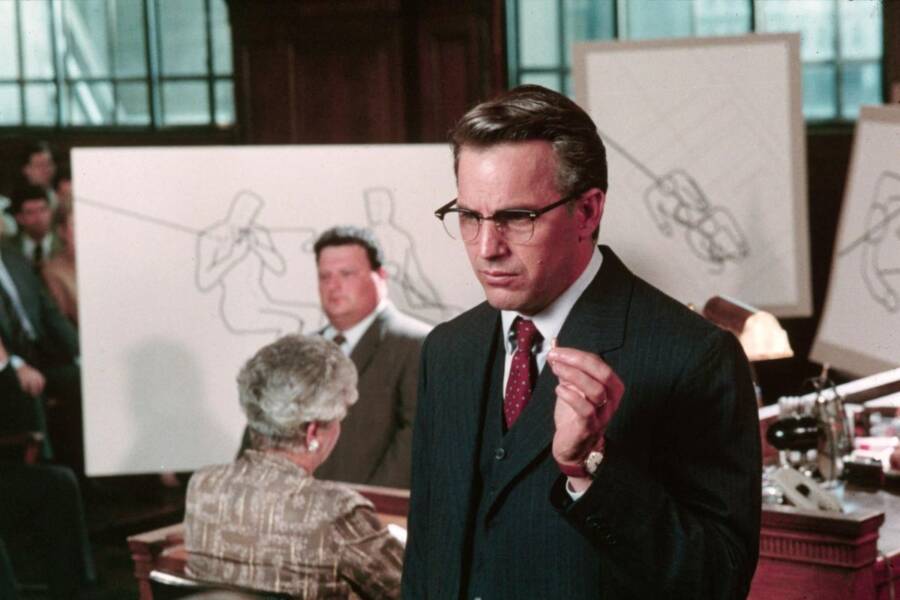Do Not Forget Your Dying King: Oliver Stone’s JFK

Wikimedia CommonsJohn F. Kennedy, Jacquelin Onassis, and John Connally in the Lincoln limousine motorcade moments before the President’s assassination. Nov. 22, 1963. Dallas, Texas.
Making a film about the assassination of President John F. Kennedy is no easy task. To be sure, any film on the matter is arguably the most difficult to criticize for its accuracy. Not only have key players died, but acquiring the truth from the CIA or those actually involved is virtually impossible.
On the other hand, it isn’t too hard to critique Oliver Stone’s 1991 epic JFK for its inaccuracies.
The film essentially argues that shadowy figures within the government were not only aware but may have contributed to, and certainly benefitted from, the murder of the 35th President of the United States.
“It is not a true story per se,” he told The New York Times shortly before its release. “It explores all the possible scenarios of why Kennedy was killed, who killed him and why.”

Studio CanalOliver Stone’s magnum opus led to a renewed interest in the Warren Commission’s conclusions and the so-called “magic bullet theory.”
According to The Washington Post, a government agency called the Assassination Records Review Board said the film “disturbed” the citizenry and government officials. Surely, that was part of Stone’s mission. Indeed, the director promised a certain level of accuracy. However, some argue that he failed in this effort.
The film depicts New Orleans district attorney Jim Garrison (Kevin Costner) and his late-1960s trial efforts to find out what happened on Nov. 22, 1963. It also shows key witness David Ferrie (Joe Pesci) admitting that he worked for the CIA, but that has never been confirmed in real life. The movie hinges on the idea that a government conspiracy was behind the JFK assassination.
In reality, Garrison hypnotized and gave a suspicious “truth serum” known to make people suggestible to a key witness in order to garner a specific testimony out of him.
In the film, Stone opted to fabricate a neo-Nazi, male prostitute played by Kevin Bacon to explicitly admit to a government conspiracy plot instead. Bacon’s character is a composite of several witnesses Garrison interviewed.
Perhaps most egregious of JFK is its use of a character named X (Donald Sutherland). The composite character was necessary to give large amounts of exposition, but this fabricated figure never existed. Rather, he was numerous people in one.
On the other hand, X provides an undeniable amount of context for skeptics regarding corruption.
In Stone’s defense, the production did include extensive research on governmental documentation. There seemed to be a massive effort made to trounce his movie upon release, which the director tried hard to fight.
“I had never made a movie where I had to defend it six months later in the press,” he said. “The media was very nasty and they’d set me up on shows. At some point, I had quite a bit of research on my side, but I’d have to recall it all [on the spot] and I couldn’t do that.”
Though the Assassination Records Review Board said the film unfairly “popularized a version of President Kennedy’s assassination” that saw several government agencies involved, it also said the government wasn’t doing itself any favors by keeping key facts classified.





